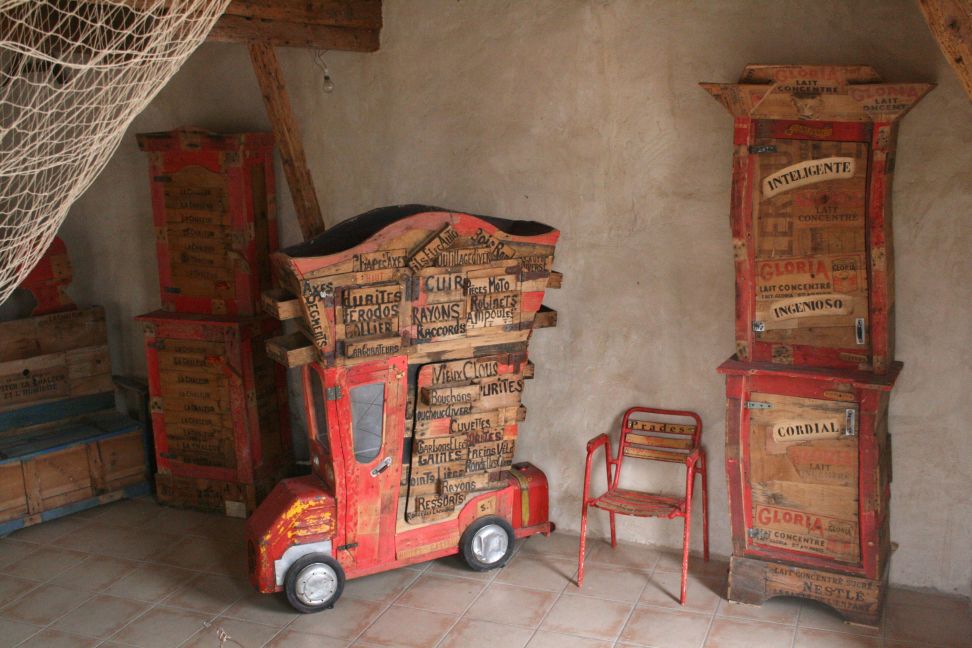The Independent's journalism is supported by our readers. When you purchase through links on our site, we may earn commission.
Preservation... A cultural collection in Languedoc
An impressive number of Languedoc's buildings, monuments and artefacts have been (and, indeed, are still being) carefully preserved

Your support helps us to tell the story
From reproductive rights to climate change to Big Tech, The Independent is on the ground when the story is developing. Whether it's investigating the financials of Elon Musk's pro-Trump PAC or producing our latest documentary, 'The A Word', which shines a light on the American women fighting for reproductive rights, we know how important it is to parse out the facts from the messaging.
At such a critical moment in US history, we need reporters on the ground. Your donation allows us to keep sending journalists to speak to both sides of the story.
The Independent is trusted by Americans across the entire political spectrum. And unlike many other quality news outlets, we choose not to lock Americans out of our reporting and analysis with paywalls. We believe quality journalism should be available to everyone, paid for by those who can afford it.
Your support makes all the difference.You tap into a tremendous passion for the past in Languedoc. Not only is this region steeped in history but, thanks to the commitment of local residents, an impressive number of its buildings, monuments and artefacts have been (and, indeed, are still being) carefully preserved.
Take the Ephèbe Museum in the modern resort of Cap d’Agde, for example. This amazing gallery displays the treasures found in the sea immediately around – a great many of them discovered and donated by recreational divers. The ancient town of Agde a short distance away is the second oldest settlement in France after Marseille. Founded by the Greeks in the sixth century BC, it was a very rich and busy port for centuries, as the wealth of finds in the museum attests. There are quantities of intact amphora here; Roman millstones; enormous and stunningly complete dolium storage jars; decorative wine vessels and much more. In pride of place is the eponymous Ephèbe, a near life-size bronze believed to be a statue of Alexander the Great.
Further inland, to the east of Pézenas, Abbaye de Valmagne is an architectural marvel. This huge Cistercian monastery survived the widespread destruction of the French Revolution when it was sold to the Granier-Joyeuse family who conserved the church by turning it into a winery. The property was subsequently bought by the Count of Turenne, whose descendants still lovingly look after it today, complete with enormous wine vats punctuating the stupendous nave.
West of Béziers, work is ongoing at the Abbaye de Fontcaude. This sublimely peaceful Augustinian monastery was founded in the 12th century, and abandoned in the 19th century after which it fell into ruin. Today, parts of it have been restored, the efforts masterminded and funded by a group of local enthusiasts.
At Roujan, to the north-east, the 11th-century priory-cum-château of Cassan is in the throes of being rescued. Once a thriving priory with 80 canons living here, it was transformed into a glorious palace in the 1750s and today you can explore several of the splendid ground floor rooms, while restoration work is ongoing in the second storey. A visit here will also take in the adjoining priory church, an immensely tall building that was consecrated in 1115. It’s soaring barrel vault ceiling is an extraordinary feat of Romanesque engineering and grace.
Nearby an impressive feat of both engineering and conservation has been achieved near the village of Faugères. For a great many years, three 17th-century windmills lay in ruins on a ridge just above this enterprising village – they were thought to have been destroyed after the local miller proclaimed “Long live the King” during the French Revolution. Since 1997, one mill has been painstakingly brought back to working life, complete with sails and original millstone. For the local volunteers involved it has been a richly rewarding exercise in engineering history, as well as an absorbing journey into the region’s architectural past.
Musée de L’Ephèbe, Cap d’Agde (00 33 4 67 94 69 60; ville-agde.fr).
Abbaye de Valmagne, near Villeveyrac (00 33 4 67 78 47 32; valmagne.com).
Abbaye de Fontcaude, near Béziers (00 33 4 67 38 23 85; abbaye-de-fontcaude.com).
Château de Cassan, Roujan (00 33 4 67 24 52 45; chateau-cassan.com).
Les Moulins de Faugères, Faugères ( moulinsde faugeres.blogspot.com).
Join our commenting forum
Join thought-provoking conversations, follow other Independent readers and see their replies
Comments